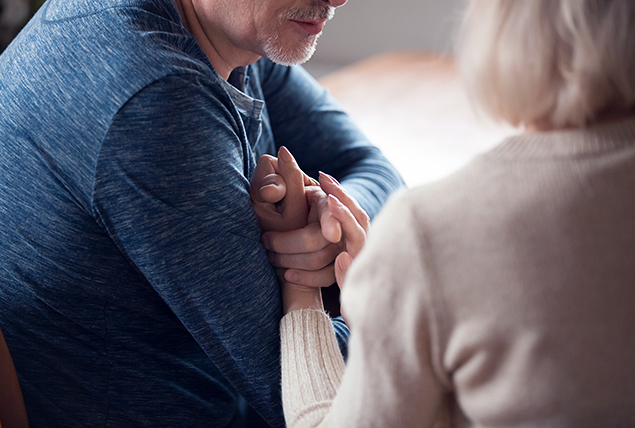STDs, STIs and Senior Citizens

More than 54 million adults ages 65 and older were living in the United States in 2021, according to the U.S. Census Bureau. Many of them—about 40 percent, according to a 2018 University of Michigan poll—remain sexually active.
That percentage doesn't surprise Jerome Chelliah, M.D., vice president of clinical operations at HerMD, an in-person and virtual women's healthcare service with locations in Indiana, Kentucky, New Jersey, Ohio and Tennessee.
"One of the greatest myths is that as people grow older, they become less sexually active," he said. "But there is growing evidence to suggest that sex remains important, even after retirement."
The Centers for Disease Control and Prevention (CDC) reports that sexual activity is a vital part of later life and often associated with better cardiovascular health, heightened self-esteem and overall increased satisfaction. However, with this continued sexual activity comes an increased risk of infection, an issue the demographic doesn't seem to understand and one for which they are paying the price.
The CDC and other entities that track such information have seen the prevalence of gonorrhea, syphilis and chlamydia rise steadily in people 65 and older since 2020.
The reasons are varied, according to Judith A. Smith, Pharm.D., a professor in the department of obstetrics, gynecology and reproductive sciences at McGovern Medical School at UTHealth Houston.
"We are living longer, healthier lives and staying more active," she explained.
Older adults are more social than in years past. Also, assisted living communities and senior centers provide and positively encourage opportunities to connect with others that didn't exist 30 years ago. As some of those connections lead to intimacy, that's where the trouble can potentially start.
Brushing up on sex ed
"Men and women who previously were in long-term, stable relationships haven't had to think about sexual health for decades," Smith noted.
For some seniors, the concept of carrying condoms in a wallet is totally alien. Consequently, the rate of sexually transmitted infections (STIs) for this group is rising because more older adults are having unprotected sexual activity with new partners.
"It's partially a question of education," Smith added. "No one is talking about how to have safer sex and the importance of condom use."
The data bears it out.
"Research has shown that an estimated 17 percent of those aged 60 to 69 report condom use," Chelliah said. "That's a decrease from a reported condom usage rate of approximately 24 percent within the 50 to 59 age group."
In order to protect themselves and their partners, Smith recommended that seniors need to be better educated about the risks of STIs and how to prevent STIs.
"The majority of sexually active adults still think of condoms as a way to protect against pregnancy, which is obviously not a concern for women over 60, so they are not using them," she said.
The threat of HPV
STIs could present a heightened problem for seniors, who may have less ability to fight off disease in comparison to their younger selves. This is perhaps especially true for people who contract HPV (human papillomavirus), the most common STI—and one for which there is no treatment.
"Often, the older population has weakened immune function due to aging and will be less likely to clear HPV on their own," Smith explained. "Women who are postmenopausal often discontinue regular gynecologic exams, Pap smear screening and HPV testing, and might be at higher risk of developing HPV-related cancer from a new infection."
Without knowing they have HPV, women are more likely to pass the disease to their partners, who could then pass it on to others.
HPV is known to cause five cancers in women: cervical, anal, oropharyngeal (back of the throat), vaginal and vulvar. Men with HPV can develop cancer of the penis, anus and back of the throat.
While the introduction of the HPV vaccine in 2006 promised a drop in incidence in the future, unfortunately, it is of little comfort for older adults. The CDC recommends the vaccine for all people younger than 26, and for people ages 26 to 45 on physician recommendation only, but not at all for people older than 45 who have probably already been exposed to the virus.
If you've had unprotected sex or are concerned about symptoms that mirror those of a sexually transmitted infection, speak with your doctor. Even if you are not experiencing symptoms, it's essential to talk to your primary care physician about your sexual activity on a regular basis, as some STIs don't present with symptoms. Doctors and other healthcare providers can offer advice on sexual health and disease prevention, and order screening if they think you are at risk for infection.


















